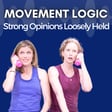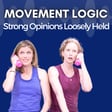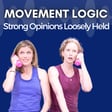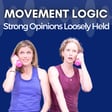
85: Boosting Recovery: What Really Works
In this solo episode of the Movement Logic Podcast, Laurel Beversdorf dives into the topic of exercise recovery. She differentiates between the physiological 'Big R' recovery and the 'little r' recovery, or aggressively marketed “recovery optimization” practices that the wellness industry loves to sell. Laurel discusses how sleep, nutrition, and strategic exercise stress management are critical to effective “big R’ recovery and clarifies why many marketed recovery methods may not be as effective as claimed. She emphasizes the importance of balancing exercise with adequate recovery to prevent injuries and achieve the positive adaptations and health outcomes we’re looking for when we exercise.
Sign up for our free Bone Density Mini Course here!
00:00 Introduction to exercise recovery
01:23 Understanding recovery: the basics
02:37 The rise of commercialized recovery “optimization practices” and why these are different from the recovery your body will do on its own if you let it.
03:56 The essentials of recovery - time, resources, and strategy
07:55 Misconceptions surrounding “recovery optimization” practices
09:55 The importance of exercise
12:27 Balancing exercise and recovery
18:54 Practical tips for effective recovery
28:26 Final thoughts and encouragement
Links:
Good to Go: What the Athlete in All of Us Can Learn from the Strange Science of Recovery by Christie Aschwanden
Dr Steph Mundt - managing bone stress injuries and relative energy deficiency in our athletes on the Movement Optimism podcast
Research on cool downs:
Pernigoni et al (2023) PMID: 37039750
Afonso et al (2021) PMID: 34025459
Mechelen et al (1993) PMID: 8238713



